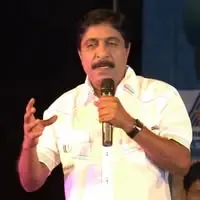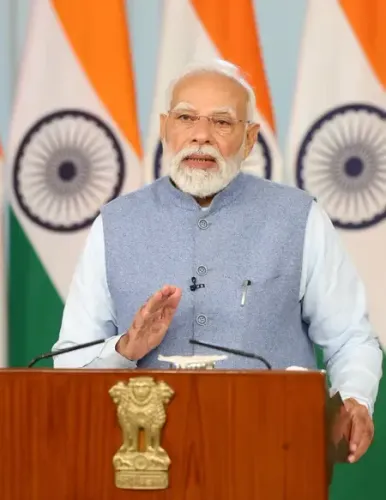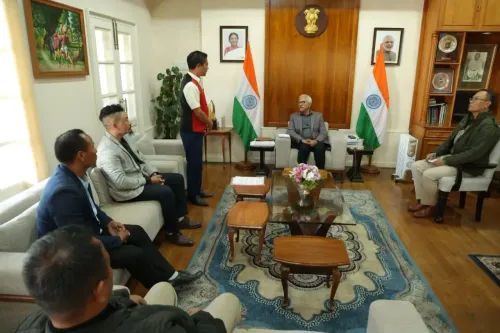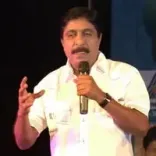Digvijaya Singh Responds to 'Traitor' Posters with Call to Identify Betrayers
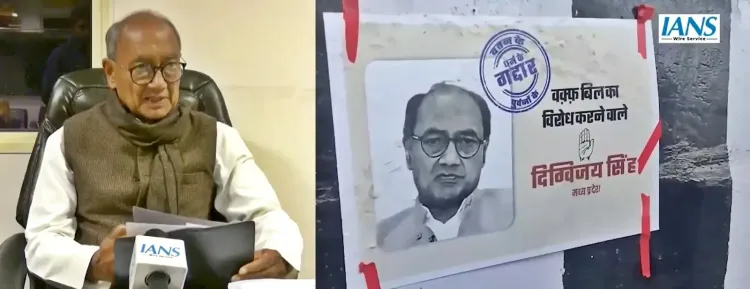
Synopsis
Key Takeaways
- Digvijaya Singh responds to 'gaddar' posters.
- Calls for recognition of traitors.
- Wishes people on Hanuman Jayanti.
- Protests against Waqf Amendment Act are ongoing.
- Supreme Court to hear petitions challenging the law.
Bhopal, April 12 (NationPress) Former Chief Minister of Madhya Pradesh, Digvijaya Singh, addressed the posters featuring his image that labeled him as a 'gaddar' of the Hindu faith by stating, "Gaddaron Ko Pahchano" (recognize traitors).
During his prayer visit to the Makamneshwar Hanuman temple in Bhopal on the occasion of Hanuman Jayanti, he expressed, "I extend my heartfelt wishes to the people of Madhya Pradesh and the devotees of Lord Hanuman throughout the nation on this significant day. May the Almighty bless us all."
Responding to inquiries from the media about the posters branding him a “Gaddar”, he reiterated, "Gaddaron Ko Pahchano (recognize traitors). Jai Shri Ram."
On Friday, posters depicting Digvijaya Singh appeared in Bhopal and other regions of the state, accusing him of endorsing the Waqf (Amendment) Act.
The term “gaddar” (traitor) was also directed at other Congress leaders alongside Singh's image and the Congress party's symbol.
These posters emerged amidst discussions regarding the newly passed Waqf (Amendment) Act, which has received varied responses from political factions and the Muslim community nationwide.
On Thursday, Congress MLA Arif Masood organized a protest against the Waqf (Amendment) Act in Bhopal, attracting a significant turnout from the Muslim community.
After the Waqf (Amendment) Bill-2025 was approved by both Houses of Parliament, President Droupadi Murmu granted her assent on April 5, and it came into effect on April 8.
More than 10 petitions, including those from politicians, AIMPLB, and Jamiat Ulama-i-Hind, have been lodged in the Supreme Court (SC) to contest the law's validity.
The petitioners argue that the law's provisions unfairly target Muslims by imposing restrictions not applicable to other religious endowments.
The SC bench, led by Chief Justice of India Sanjiv Khanna, is set to hear the case on April 16.
The Centre has already submitted a caveat to the apex court to ensure it is heard before any orders are issued.


